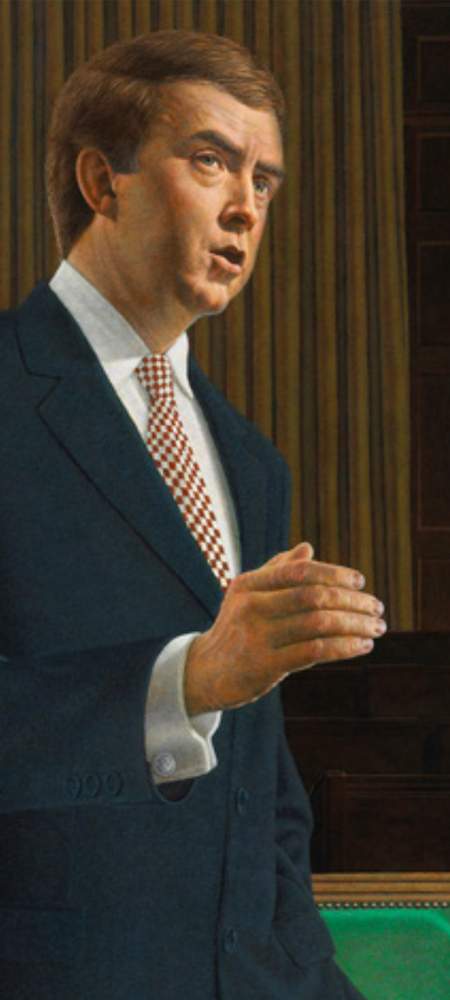Chapter
No
Joe Clark
The prime ministership of Joe Clark is one of the great “what-ifs?” of Canadian history. Serving the shortest term of any elected prime minister, Clark barely accomplished anything in office before he was promptly thrown back out.
Born in Alberta, Clark became a member of the Progressive Conservative Party while in college, and sought a career in politics from a young age. Working as a staffer and advisor for the PCs, he was elected to Parliament in his own right in 1972, and then staged a surprise upset to win the party leadership four years later.
Clark was only in his 30s, largely unknown and unaccomplished, and awkward in his speech, manners, and appearance. The press called him “Joe Who?” and the nickname stuck. Yet as the economic situation in Canada continued to sour, with high unemployment and inflation, Clark proved an effective populist, channeling the growing outrage many felt towards the government of Pierre Trudeau (1919-2000), particularly in western Canada. In the 1979 federal election he managed to unseat Trudeau, though just barely — he won an incredibly narrow minority plurality of seats in Parliament, and lost the popular vote. Humiliated, Trudeau said he would retire from politics.
In power, Clark’s administration delayed summoning Parliament for as long as possible, and when he finally did, his finance minister introduced a harsh austerity budget that advocated, among other things, raising gasoline taxes. Parliament voted no-confidence in Clark and forced another election, prompting Trudeau to cancel his retirement plans and lead the Liberals back to power. After only eight months of Conservative rule, voters abruptly changed their minds.
It was Clark’s turn to be humiliated, but he didn’t retire. Remaining a high-profile Progressive Conservative, the former prime minister was hired to serve as foreign minister once his party was elected back to power under Brian Mulroney (1939-2024) in 1984.
In 1998 Clark was once again made leader of the PC Party, though this was seen as a somewhat desperate move, as political developments in the 1990s had reduced the once-powerful party to fringe status. Turning quite left-wing in his senior years, Clark strongly opposed merging his party with the more conservative Reform Alliance Party, though once he left PC leadership a second time in 2003 it happened anyway. Clark never supported the new Conservative Party of Canada, and was a strong critic of its first prime minister, Stephen Harper (b. 1959), whom he refused to endorse. Clark still occasionally writes and comments on Canadian politics, and remains a popular figure among those nostalgic for a truly “progressive” flavour of conservatism.
